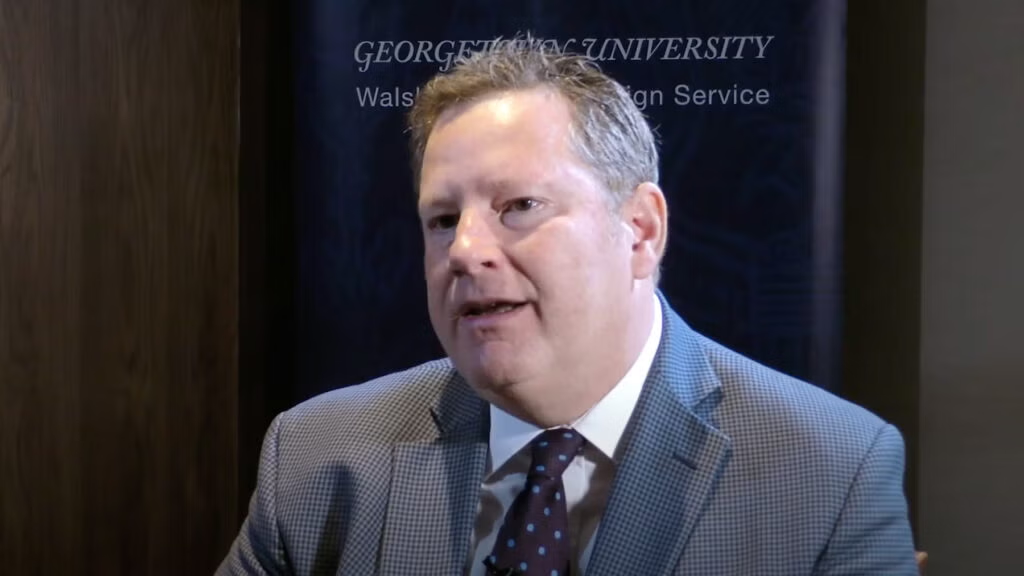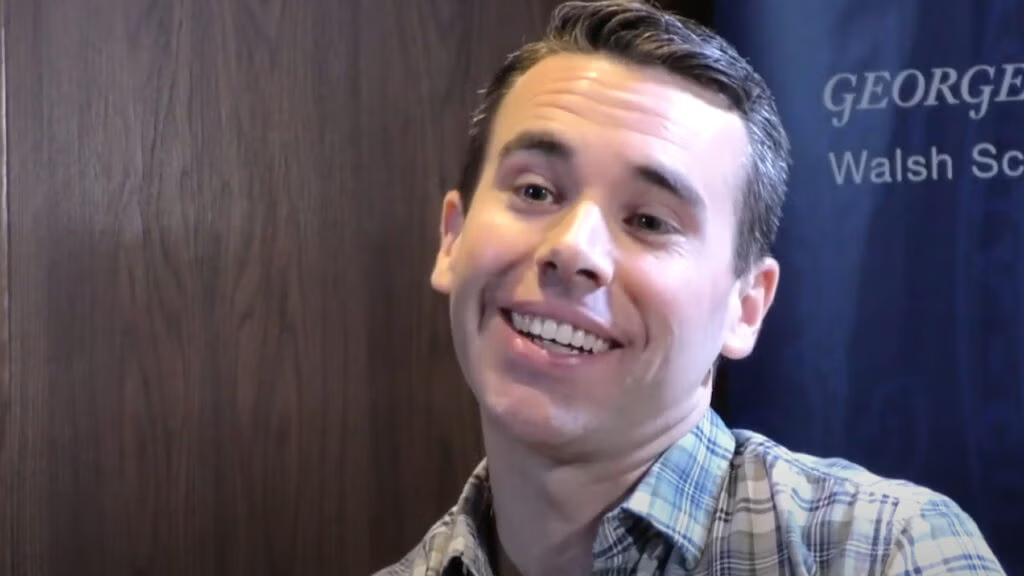Our History
The School of Foreign Service (SFS) was founded in 1919 to prepare the U.S. to engage on the global stage.
Since then, we have been preparing global leaders, both domestic and international, to make a safer, more equitable, prosperous and peaceful world.
The origins of the School of Foreign Service
The School of Foreign Service (SFS) was founded based on the vision of Father Edmund A. Walsh, S.J., who became dean of Georgetown College in 1916. Fr. Walsh’s vision was a school that would prepare students for all primary forms of foreign representation — whether commercial, financial, consular or diplomatic. His deanship, however, was interrupted when the War Department (now the Department of Defense) enlisted him to help design an academic program for the Student Army Training Corps, which prepared military personnel for the United States’ entry into World War I.
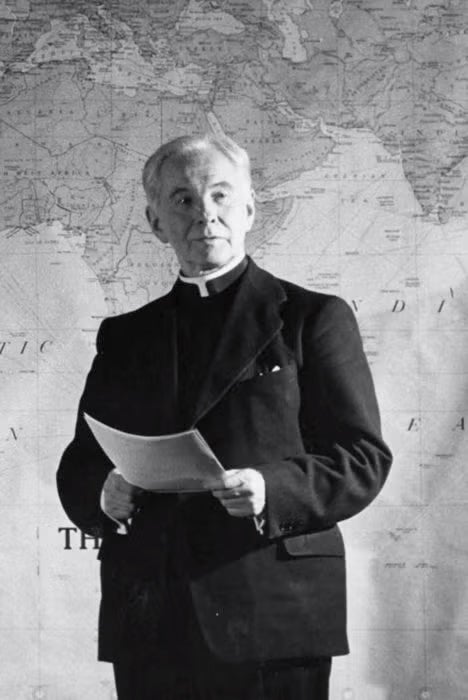
Through this experience, Fr. Walsh recognized the lack of national diplomacy education and saw the opportunity to create a dedicated school for international affairs. Given Georgetown University’s prime location in Washington, DC, and its values of service, Fr. Walsh believed the university was ideally positioned to house the nation’s first school focused on diplomacy and global representation.
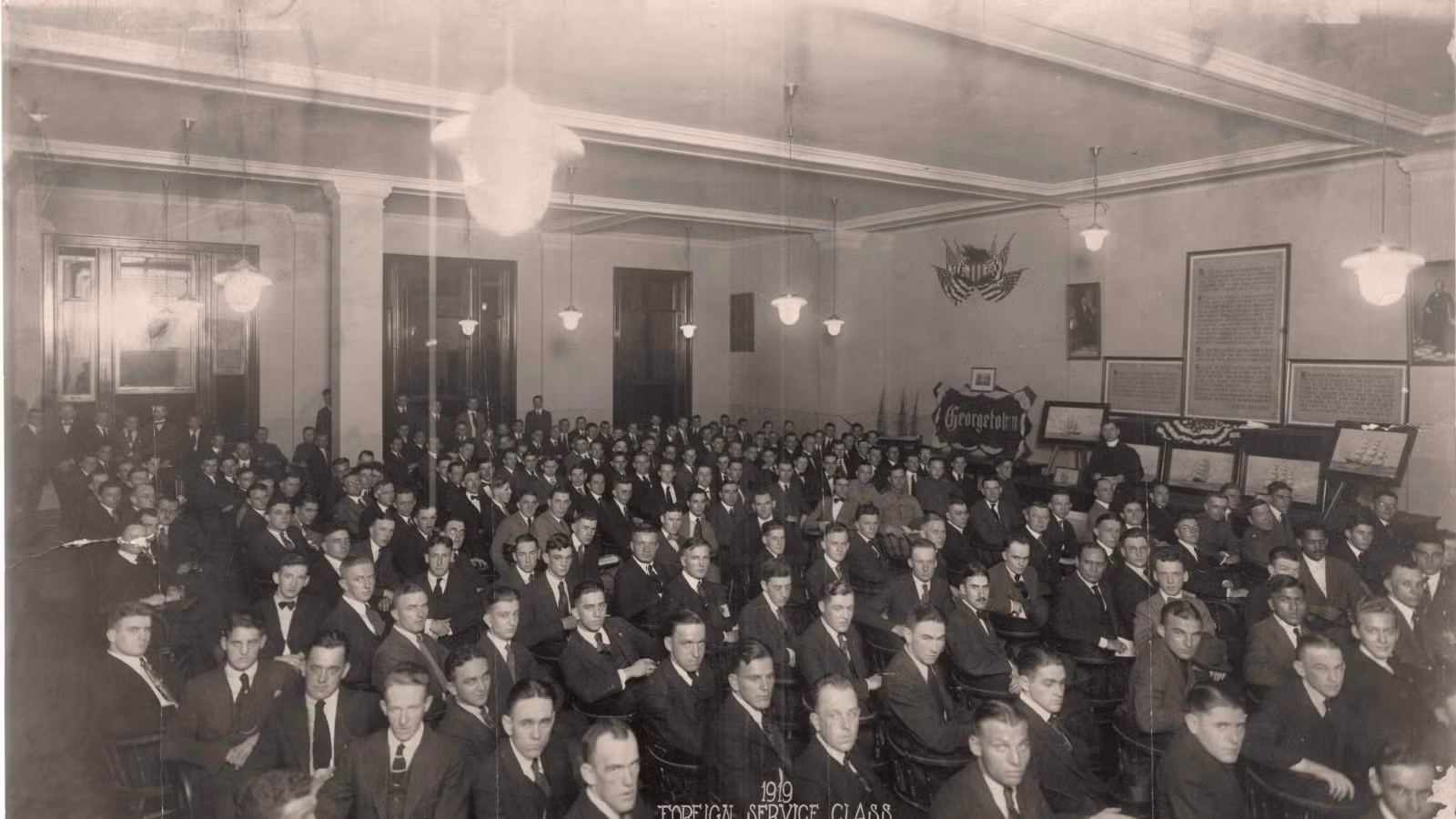
The founding of the School of Foreign Service
With the support of Father John B. Creeden, S.J., then president of Georgetown University, and the authorization of the Board of Regents, Fr. Walsh initiated the creation of the School of Foreign Service. On November 25, 1919, the school was formally inaugurated. The name “Foreign Service” was used by SFS before the formal establishment of the modern U.S. State Department Foreign Service in 1924.
Fr. Walsh envisioned a school that would train individuals for diplomatic service and prepare them for commercial, consular, and financial roles in the international arena. This broad vision set the stage for the school’s diverse and impactful future.
Early growth and expansion
The school’s impact continued to grow through the mid-20th century. In 1956, two years after Fr. Walsh’s passing, Georgetown University opened the Walsh Building on East Campus, which became the school’s first permanent home.
The school’s influence expanded internationally with the establishment of programs like the Center for Latin American Studies in 1959, the Center for Eurasian, Russian, and East European Studies in the same year, and the African and Asian Studies programs in 1980. These developments were in response to the geopolitical shifts of the Cold War and the need for specialized knowledge in global affairs.
Key milestones and global impact
Throughout the latter half of the 20th century and into the 21st century, the Walsh School of Foreign Service cemented its reputation as a leader in international studies. Notable alumni emerged in various sectors, including Leon Dostert (SFS’31), who served as chief interpreter at the Nuremberg Trials, and William Jefferson Clinton (SFS’68), who became U.S. President in 1993. The school also took significant steps toward inclusivity, admitting women as full-time students in 1954.
In the 21st century, the school adapted to new global challenges, launching the Global Business major in 2015 and establishing the Center for Security and Emerging Technologies (CSET) in 2019 to address issues at the intersection of security and technology. SFS’s global reach expanded further, with a campus opening in Qatar in 2005 and a branch location in Jakarta in 2025. The school’s ongoing efforts to develop innovative programs reflect its responsiveness to the ever-evolving field of international relations.
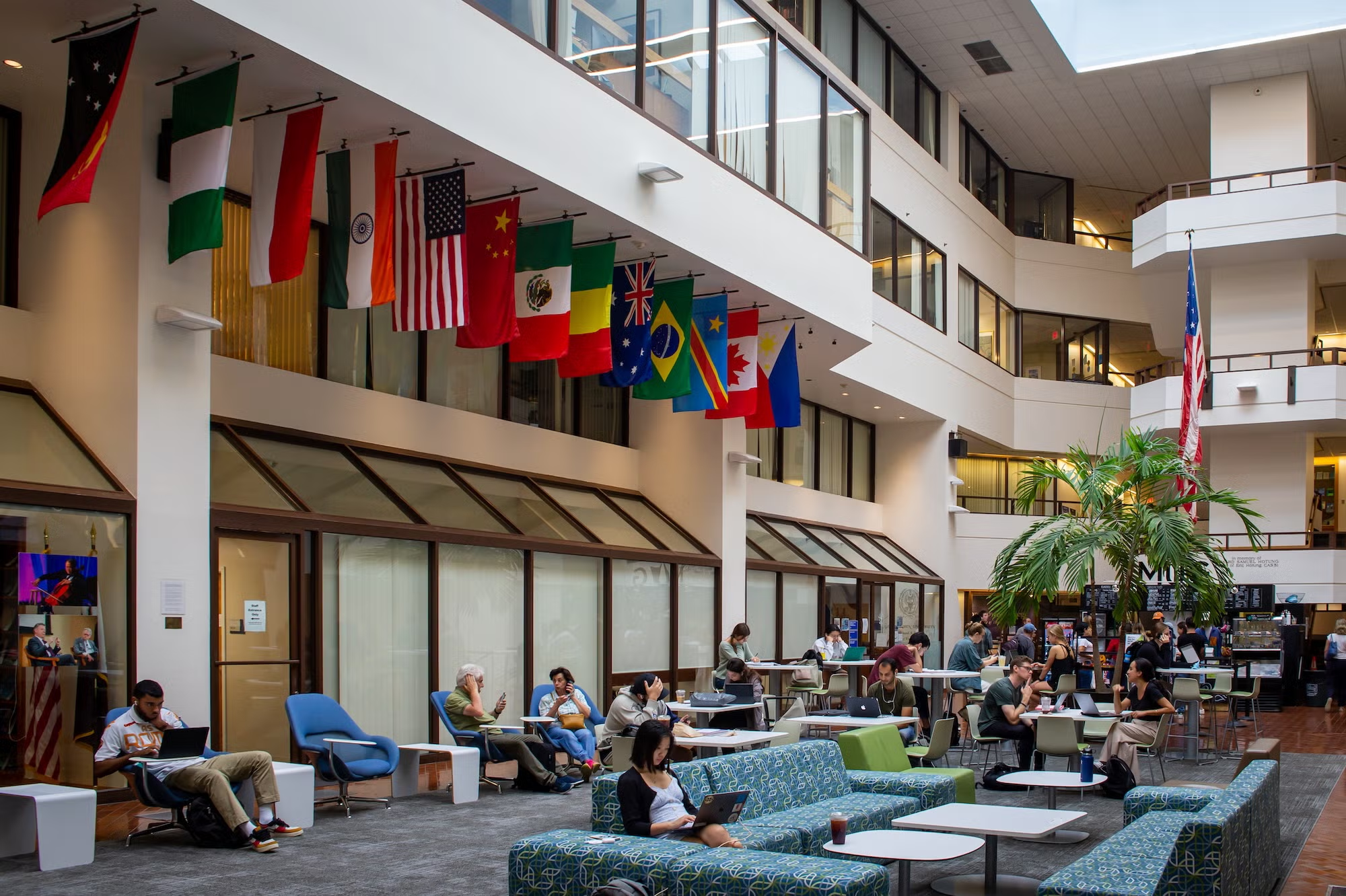
A legacy of leadership and service
Today, the School of Foreign Service is a premier institution that educates the next generation of global leaders. The school continues to thrive, drawing on its rich history, diverse academic offerings, and network of influential alumni who have shaped diplomacy, business, development, and security worldwide. SFS is ranked number one in the world in Foreign Policy magazine for programs in international relations. Through its commitment to educational excellence, public service, and leadership, SFS remains at the forefront of addressing the world’s most pressing global challenges.
An integrated course of study
Fr. Walsh designed the school’s original curriculum to merge technical aspects of international affairs with a liberal education and moral values representative of Georgetown’s Jesuit tradition.
“Born in an hour that enriches it with a heritage of dearly purchased lessons in the meaning of true citizenship and pure patriotism, the School of Foreign Service hopefully dedicates its future to the exemplification of the Christian trilogy; −to Law, that Justice may prevail in the economic and political sciences; to Beauty, that she may not walk unnoticed in the busy marts of trade, among the money changers, and to Conscience, that sound Morality may ever guide our beloved country and countrymen in all their dealings, be they with nations or individuals.”
Though curricular modifications have been made to meet the changing international landscape, the SFS curriculum remains grounded in many aspects of Walsh’s original conception.

Over 100 years of the Master of Science in Foreign Service
Our Master of Science in Foreign Service truly is one of our signature degree programs, founded in 1922 with a mission to prepare our students to engage with dynamic global challenges and opportunities successfully. Discover how the Master of Science in Foreign Service program has developed through the decades.

